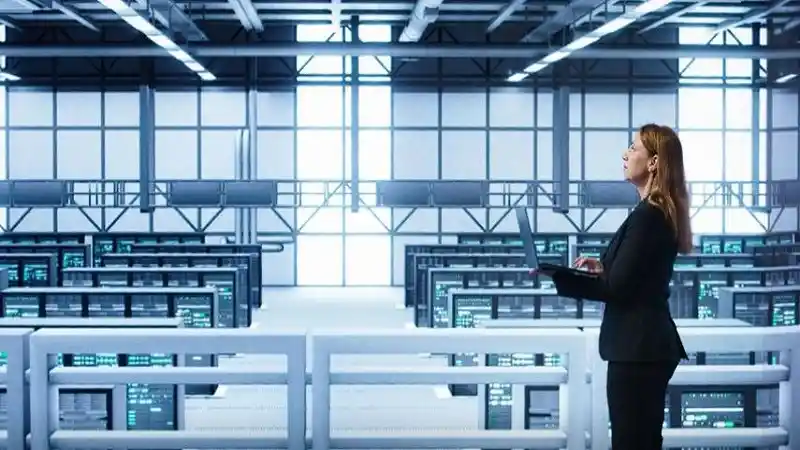The digital pulse of modern society is growing stronger and increasingly demanding more power. As industry leaders like Revolution Group support data centers in expanding to meet the needs of digital transformation through IT consulting and virtual CIO services, they are consuming a substantial amount of energy.
With managed IT support and cybersecurity, it’s no longer just about keeping operations running—these digital powerhouses require intelligent, sustainable solutions to maintain efficiency. Think of it as giving our digital infrastructure a much-needed fitness program, especially when managing complex IT projects.
Power optimization and efficiency
Power optimization and efficiency are crucial concepts in modern managed IT services, particularly in devices and systems where energy consumption is a key concern. Power optimization involves minimizing the amount of energy consumed while maintaining the desired performance of a system or device.
This can be achieved through various techniques, such as dynamic voltage scaling, adaptive power management, and reducing unnecessary computations. Efficiency, on the other hand, refers to the ratio of useful output to the total input energy, ensuring that systems operate at the highest possible level of effectiveness with the least waste. In industries such as computing, telecommunications, and electric vehicles, power optimization and efficiency not only help in reducing energy costs but also contribute to sustainability by lowering carbon footprints. As technology continues to advance, these concepts are becoming even more important in the design and operation of smart devices, renewable energy systems, and data centers, where managing power usage is vital for both performance and environmental impact.
Sustainability through technology
Modern data centers are adopting AI-powered cooling systems and cloud-based services, much like a skilled gardener caring for their digital ecosystem.
These systems can forecast peak usage times, optimize workload distribution, and automatically adjust cooling settings based on real-time environmental conditions.
This proactive approach to sustainability is not only environmentally responsible but also essential for meeting growing regulatory demands and customer expectations.
Strategic infrastructure planning
Through comprehensive IT strategy and cybersecurity planning, artificial intelligence is becoming an integral part of data center operations.
The rise of software-defined infrastructure has opened up new opportunities for strategic planning and resource management.
This approach enables the quick deployment of new services while upholding strong security measures and ensuring efficient use of resources. The key lies in creating a robust framework that can adapt to changing business needs while maintaining operational excellence.
Future-ready solutions
The data center of tomorrow needs to be as adaptable as a chameleon. As edge computing rapidly grows, managed IT security services must step up their efforts. Industry leaders are shaping the digital future, guiding organizations through the complex landscape of infrastructure decisions while focusing on both efficiency and competitiveness.
The future of data center operations lies in the elegant dance between physical hardware and managed IT support. Like a finely tuned orchestra, the key is to make all these elements work together in perfect harmony, creating a sustainable symphony of digital efficiency.
As data centers continue to evolve, their role in supporting our digital economy becomes increasingly critical.
For more details visit the site technewztop
